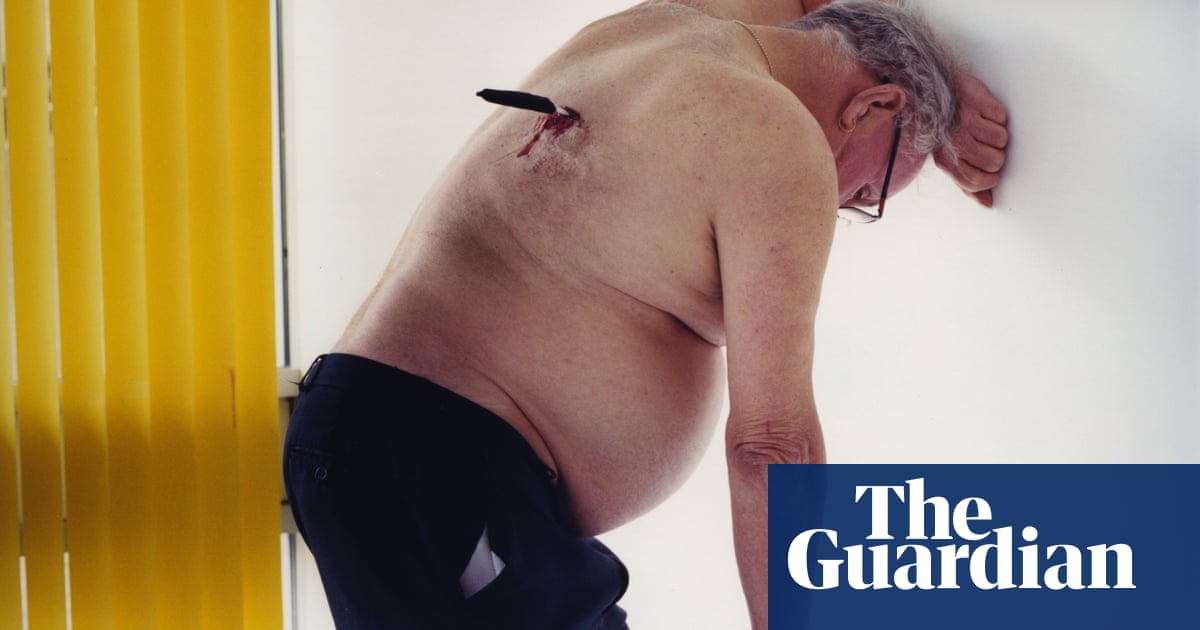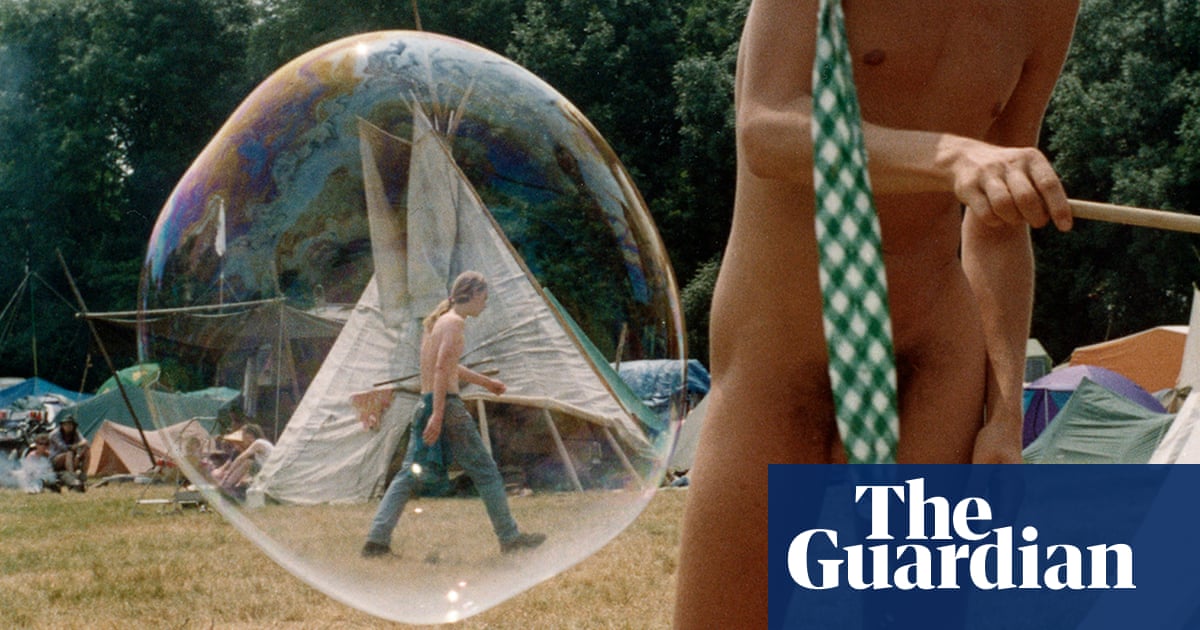
This was my first project after my 20-year collaboration with Adam Broomberg came to a close in 2021. I had never really worked as an artist or a photographer on my own, but I think we both needed to see what it felt like. Our photos had been highly conceptual, and I wanted to return to why I first became a photographer: going out into the world with a feeling of wonder, watching and having experiences with strangers. So that’s what I spent 2022 doing: meeting pensioner groups, carnival troupes, gender activists and, as this image shows, attending a meeting of the Casualties Union, who were perfecting wound makeup.
The Casualties Union, a group of volunteers that has been operational since the second world war, is used by hospitals, the emergency services and even corporate clients, to test out catastrophe scenarios. If the police were staging a hypothetical suicide attack in London, they would need casualties that not only looked like the real thing but acted like the real thing. There’s a lot of performance required, and real precision about the way the volunteers act out injuries.
I’ve worked all over the world in some difficult situations, including the Afghanistan war and some psychiatric hospitals, always thinking of myself as a neutral witness. But through the making of this recent work, and because of seismic changes in our culture, I became very aware of being white and male, and the privilege and complexity that brings. In some cases, it made it quite hard for me to make the pictures I wanted to.
So many things came up during this project, called A Perfect Sentence, that I could never have imagined. The world is so much more interesting than the contents of my head. And it has changed in such a radical way: we had Brexit, the pandemic, George Floyd’s death and Black Lives Matter. I encountered a huge amount of anxiety from people about being in front of the camera, and about who was taking the picture. I had had this daydream about meandering along and capturing a moment in time in this country. But actually it was very fraught. Things shifted – with the focus now being on the power dynamic between photographer and subject.
I shot this project on film, which had a big impact on the pictures. There’s a time lapse between the moment that you take a shot and when you see it. I retreated into my darkroom for months. I’m not a very experienced colour printer, so I made a lot of errors, got the skin tones wrong, the exposure too light or too dark, and sometimes the pictures came out way too magenta or cyan. Then, at a certain point, I realised some of those prints were more interesting to me than whatever the final picture was. Although they were imperfect, they demonstrated that a picture is not an objective thing, not a piece of evidence, but something more subjective and nuanced.
If you look at the work of Henri Cartier-Bresson, or even Martin Parr, a lot of that sort of street photography is not really morally acceptable any more. I think that style of working has been neutralised by the internet. It’s a mixed blessing: on the one hand, it means the person being pictured has a lot more authority. On the other, all the images we see today are more constructed, with less spontaneity. What I love about the Casualties Union photos is that the volunteers are trying to capture moments of trauma, yet the pictures are incredibly staged, robbing them of any real sense of urgency. These pictures speak to this tension.
A Perfect Sentence by Oliver Chanarin, produced by Forma, is at the Museum of Making, Derby, until 3 September. A book of the project is published by Loose Joints on 1 June
Oliver Chanarin’s CV
Born: London, 1971.
Trained: Artificial Intelligence at Sussex University.
Influences: “August Sander, Annie Ernaux, my mother.”
High point: “Winning the Deutsche Börse photography prize in 2013.”
Low point: “The death of Broomberg & Chanarin.”
Top tip: “As Wim Wenders said: ‘The most political decision you make is where you direct people’s eyes.’”












